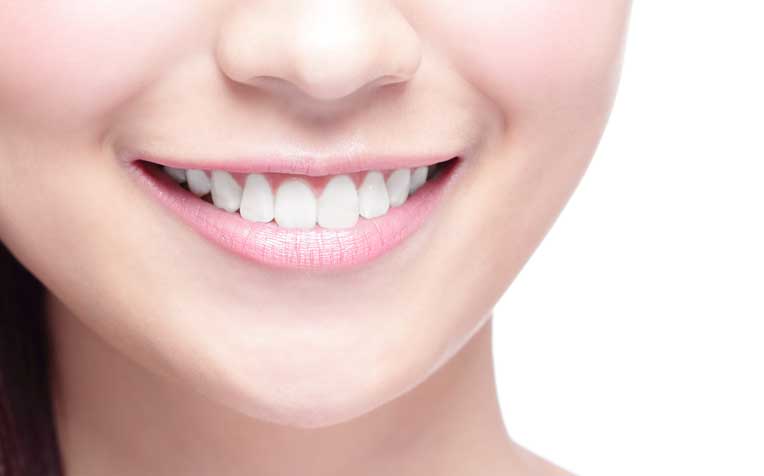
Tooth whitening products will not work on caps, crowns or fillings.
If you feel your smile is lacking some sparkle, the common thing to do is to whiten your teeth. There are two options: do-it-yourself at home or seek professional service at your dentist clinic.
Before you decide on your choice of whitening procedure, get some facts from Dr Christina Sim, Senior Consultant at the Prosthodontic Unit, National Dental Centre Singapore (NDCS), a member of the SingHealth group.
Myths of teeth whitening products
Teeth whitening can remove all stains
Not true. Teeth whitening removes intrinsic stains found inside the tooth. However, not all intrinsic stains can be lightened as some stains such as those caused by decay require the removal of the decayed tooth tissue followed by the placement of a filling material. Extrinsic stains do not require tooth whitening. These stains can be removed by a thorough prophylaxis (scaling and polishing). Products that remove extrinsic stains usually do so through the use of abrasive particles.
Teeth whitening is permanent
Not true. Professional teeth whitening by a dentist can last two to three years. The results from DIY teeth whitening will vary from product to product.
To maintain your sparkling whites, you need to practise good oral care. Frequent flossing, rinsing after drinking coffee and tea, and quitting smoking can help to prevent tooth discolouration.
Teeth whitening is for everyone
Not true. Teeth whitening is not suitable for children under the age of 16. Also, people with worn tooth enamel, receding gums, sensitive teeth, untreated cavities, and heavily restored teeth should consult a dentist before undergoing any teeth whitening procedures.
What you should know about DIY teeth whitening
Be prepared for uneven results
Commercial, standard-size mouthpiece trays may not fit your teeth precisely. Besides the discomfort, any spillover of bleaching gel onto the gums may cause gum irritation and sensitivity. Also, your saliva may dilute the whitening strips and gels, making them less effective.
Result? You may end up with teeth of different shades due to uneven bleaching.
Beware of over exposure to abrasives and bleaching chemicals
Overzealous use of DIY teeth whitening strips, gels and trays can damage tooth enamel. Some whitening toothpastes contain harsh abrasives like silica and their overuse may erode tooth enamel.
DIY teeth whitening may be cheaper than professional teeth whitening. But if you want fast and uniform results, consider letting the dentist do the job.
Ref. T12
Contributed by















 Get it on Google Play
Get it on Google Play